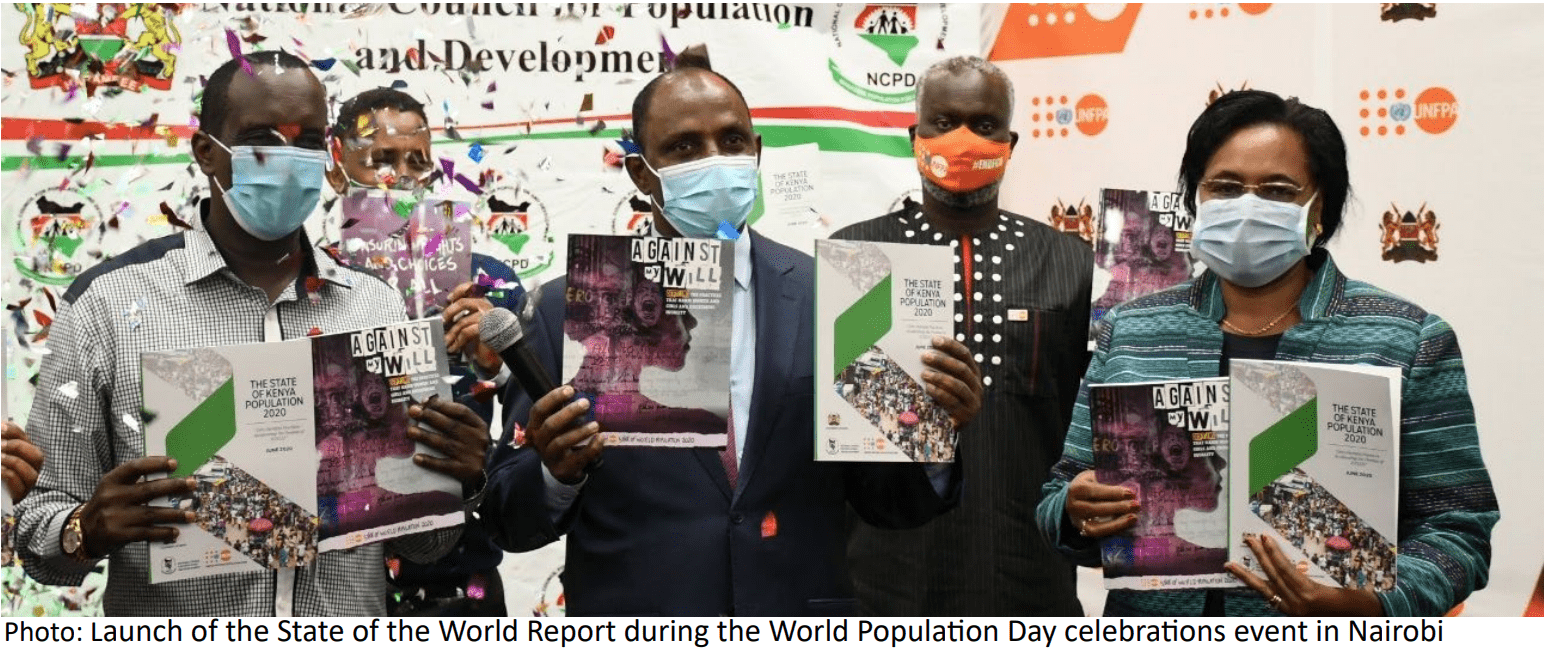The Government of Kenya through the National Treasury and Planning Cabinet Secretary Hon. (Amb.) Ukur Yatani, the Cabinet Secretary for Public Service and Gender Prof. Margret Kobia, and the UNFPA Country Representative Dr. Ademola Olajide officially launched the State of the World Population 2020 report with a call to end harmful practices against women and girls. This took place in Nairobi on the 11 th of July, 2020 on the sidelines of the WPD 2020 Celebrations. A domesticated version of the global report was also launched. According to the report, every day, hundreds of thousands of girls around the world are harmed physically or psychologically, or both, with the full knowledge and consent of their families, friends and communities. The impact ripples throughout society, buttressing gender stereotypes and inequalities. The scope of harmful practices is enormous, but three in particular have been almost universally denounced as human rights violations yet remain stubbornly widespread: female genital mutilation, child marriage and son preference. The report further states that 4 million girls will this year will undergo FGM globally. Further, some 33,000 child marriages occur every day globally and due to the global preference for sons over daughters, more than 140 million girls are considered missing today due to infanticide, kidnapping, trafficking, or other forms of violence against female infants and young girls. In societies where men outnumber women, women are at risk of experiencing rape, coerced sex, sexual exploitation, trafficking, and child marriage. These practices the UNFPA reports states are all rooted in gender inequality and a desire to control women’s bodies and lives. UNFPA Executive Director, Dr. Natalia Kanem, summed up the report in three words respect, protect and fulfill. These rally us to foster respect for women and girls by changing entrenched attitudes and practices that dehumanize and commoditize them, furthermore, we must protect women and girls by enacting and enforcing laws against practices like child marriage and female genital mutilation and consequently, Governments must fulfill their obligations under human rights treaties that require elimination of female genital mutilation and child marriage. These three words respect, protect and fulfill-can bring real change and real results for women and girls globally and in Kenya. During the Nairobi Summit on ICPD25, Kenya made commitments towards accelerating the promise on zero harmful practices and committed to eliminating, by 2030, all forms of Gender Based Violence (GBV), including child and forced marriages, by addressing social and cultural norms that propagate the practice while providing support to women and girls who have been affected. Harmful practices such as FGM and child marriage are deterrents to achieving gender equality. Harmful practices prevent Kenya from achieving a demographic dividend and the noble goals set in the Kenya Vision 2030, Big 4 Agenda, Population Policy for National Development, and the ICPD25 Kenya country commitments among others. It is therefore important and urgent that harmful practices be laid bare and addressed with a view of ending them UNFPA Kenya will continue to support communities by facilitating conversations that help communities, parents and partners understand the physical and psychological toll of these practices and the benefits that accrue to all when these practices are abandoned.
Who we are
What we do
Launch of the State of Kenya Population and State of the World Report 2020
News
Launch of the State of Kenya Population and State of the World Report 2020
22 July 2020


